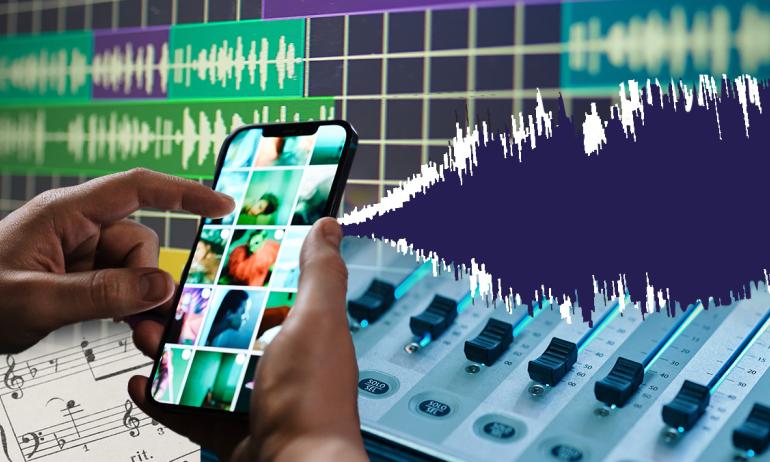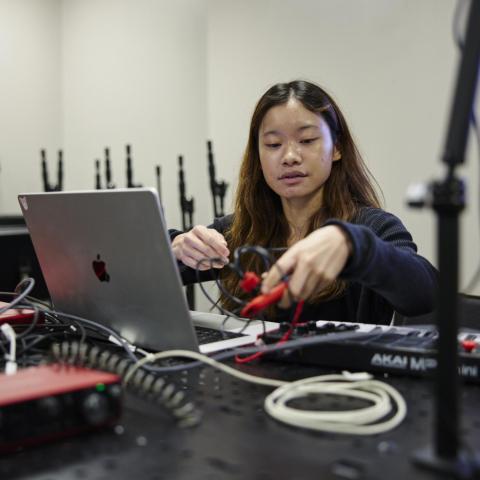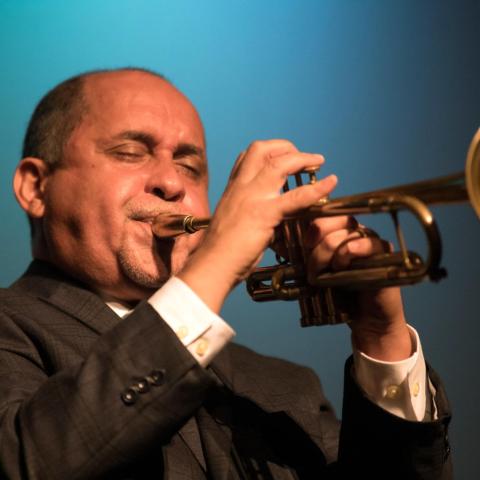Berklee Press

Let’s look at the essential practice of regularly catching “song seeds,” or inspirations for songs. By way of example, I’ll share a few recent lyric seeds of mine (parenthetical remarks are not, strictly speaking, part of the seed-catching, just some fun context):
- Slow learner (from Sansa of Game of Thrones)
- Everyone in the pool (inspired by the primaries to come)
- Oh, the moon is amazing tonight (about the recent super snow moon)
- Bag half-open
- Fools that we were
- The interesting peach
- I still have most of my teeth (context left to reader’s imagination…)
Every one of your seeds represents a little spark of interest—something you felt could be a strong starting point for a song. But what if you never go back to your list of seeds? Gradually, you’ll start feeling bad—maybe even guilty!—about all those undeveloped ideas.
This is not a problem of craft; it’s a workflow problem.
True, you need craft and skill to successfully develop a good song from a strong seed. But you won’t put in the time struggling with that work, learning that craft, until you pick a seed from your list and say, “OK, how do I turn this into a song?”
I hear about this problem from many songwriters who have established a seed-catching practice, and may even have extensive seed lists. Yet, surprisingly, these same writers may find themselves struggling with writer’s block, as if they have “no ideas for songs.” (I know—crazy, huh?) Trying to write without a clear starting point and not going back to your seed lists are related problems. In this excerpt from Chapter 4, “Supporting Practices for Seed Material,” I describe a simple but effective practice, which I call Appointment with Inspiration, that addresses both problems. It is one of the most potent interventions I know to energize your songwriting.
Appointment with Inspiration
The problem is not that some seeds you’ve captured won’t get turned into songs. According to the Songwriter’s Law of Abundance, you will—you must—collect many more seeds than you’ll ever turn into songs. The problem is when no seeds are getting turned into songs. As you add seeds to your list, you tell yourself that they’ll become great songs. But eventually, your Songwriter Mind (who knows you too well) knows you are lying; it knows that a seed thrown on that list may disappear, never to be heard from again.
When you build your workflow around a container that you put things into but never take anything out of, you are essentially creating a stale or orphaned resource. To make an externalized resource into a trusted system, you must establish a regular practice of going back to that resource. This means that you need to make a practice of not just catching but also of working with seeds, and of setting aside regular time for this work.
I call this an Appointment with Inspiration (AWI): a designated time to go back to your seed list, with no agenda or project goal other than to find a seed that sparks, if not actual joy (apologies to Marie Kondo), at least a desire to write at that moment and to “germinate”—write from—that seed. This tells your songwriter mind that your list is active, alive.
Each AWI session will have a common rhythm and flow. To start, simply scan down (or up!) your chosen list, waiting for a seed that sufficiently sparks creative interest and energy. I find that the seed I’ll choose to work with often reveals itself with an unmistakable, distinct response—not a vague “Should I pick this one or that one?” feeling. Be attentive for a seed that leaps out at you, resonates strongly, and connects by association with other material you’ve been working on. That collision of seed and interest may reflect your energy and focus for that session, your emotional state, or other myriad factors.
Don’t cheat and save a favorite new seed for your next AWI session; this undermines the discipline of going back to your seed list. With a specific creative task or project at hand, you will also work with seed lists, but differently: When you work toward a task goal, it matters that you pick the best seed from your list. But an AWI has no goal other than finding an energizing seed to work on for a while.
Any AWI session, even if spontaneously initiated, should yield a promising start to a song, and will build your confidence in the usefulness of your song seed lists. Ideally, though, you will set up AWIs as regular appointments, not dependent on opportunities or projects, or on your own fluctuating energy and enthusiasm. In particular, don’t just schedule an AWI when you feel like writing a song. Come to trust that you will feel like writing because you showed up for your AWI.
Maximize chances for success by setting AWI appointments for times and places responsive to your natural rhythms of creative work. (For my AWI practice, I prefer “after first awakening” time, sacred creative time for me.) You can experiment with setting time limits for AWI sessions, or letting sessions expand based on the song draft you initiate. As with other writing practices, imposing a time limit offers two benefits: It builds your skills for working rapidly and immersively, and it increases your willingness to schedule more sessions because the time limit constrains what you’re committing to.
The deeper value of the AWI is for you to fully appreciate the power of starting a writing session with a seed you already know is a strong idea for you—that’s why you caught it as a seed! By picking a specific seed to work on that matches your energy in the moment, you combine strong content with strong support from context: a practice of songwriting workflow that will directly benefit your craft and productivity.
Afterword
Since publication of Songwriting in Practice, I’ve shared the AWI practice with many student writers; I’ve also done my own homework and put the technique to the test on many occasions. What’s most surprising to me is how few seeds I need to scroll through before one “pops” for me with the requisite energy to start writing. Some newer writers who have collected only a few seeds on their list may have a different experience. But, curiously, once you’ve assiduously assembled an extensive list of seeds, you’ll find you don’t need to dive far into it. You also get lucky more quickly. It’s as if the Songwriting Gods (and Goddesses) are smiling down upon you—for having done your songwriter’s homework.




